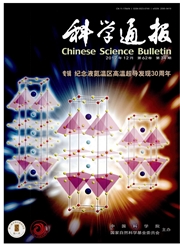

 中文摘要:
中文摘要:
如何把信息转换为解决问题所需要的智能,是信息科学领域的核心研究课题.本文报道的"信息转换原理"提供了一种把信息转换成为智能的可行方法.为了能够把信息转换为智能,它首先突破了信息论局限于统计形式的限制,建立了全信息理论;然后,研究了作为信息与智能中介的知识理论,发现知识的生态规律"信息-知识-智能转换"就是智能的生成机制,因而提出了智能生成机制的模拟方法,使人工智能三大主流方法(结构模拟、功能模拟、行为模拟)实现了统一;在此基础上定义了意识-情感-理智三位一体的高等人工智能模型,证明了意识、情感和智能都可以由各自条件下的信息转换生成出来,从而建立了基于信息转换的高等人工智能理论,成为沟通信息理论、知识理论和智能理论的一体化理论.
 英文摘要:
英文摘要:
It is the aim to report in the paper a new result, namely Principles of Information Conversions, that include the following components: the establishment of comprehensive theory of information which overcomes the fundamental limitations in information theory and can then be applied to all areas of information processes; the sum up of the laws of knowledge ecology, in which the law of external ecology of knowledge, i.e., the information conversions (information conversed to knowledge and further to intelligence), has been understood as the common mechanism of intelligence formation; the setting up of mechanism approach to artificial intelligence (AI), which successfully unifies the three major AI approaches (structuralism, functionalism and behaviorism); the defining of the advanced Intelligence model which is featured specifically by the trinity of consciousness-emotion-intelligence; and the proving that the advanced intelligence can be based on the various forms of information conversions under the related conditions and guided by respective goals. It is concluded that the principles of information conversions can be shown as an integrated theory of information, knowledge and intelligence, which is of great significance.
 同期刊论文项目
同期刊论文项目
 同项目期刊论文
同项目期刊论文
 Estimating Confidence Intervals for Structural Differences between Contrast Groups with Missing Data
Estimating Confidence Intervals for Structural Differences between Contrast Groups with Missing Data POP Algorithm: Kernel-Based Imputation to Treat Missing Values in Knowledge Discovery from Databases
POP Algorithm: Kernel-Based Imputation to Treat Missing Values in Knowledge Discovery from Databases Genetic-algorithm-based Strategy for Identifying Association Rules without Specifying Actual Minimum
Genetic-algorithm-based Strategy for Identifying Association Rules without Specifying Actual Minimum 期刊信息
期刊信息
